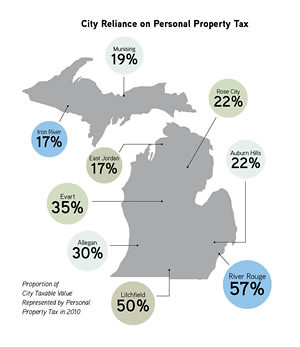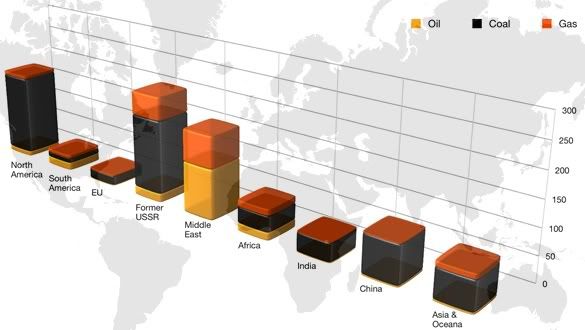Now
here's a fine example in CNN.com of a Straw Man fallacy written by Dr. Bergstrand:
Nostalgia for factory jobs that will never come back
I'm sure that "Jeffrey Bergstrand, professor of finance at the University of Notre Dame" is a very smart man and knows what the hell he's talking about when it comes to things like Finance and Markets and whatnot. But that doesn't give him a free pass to be intellectually sloppy. Quite the opposite. Somebody's gotta drag him by his collar to the mess he made in the Morning News and have his face rubbed into it...."NO! NO Professor Bergtrand! NO! BAD BOY! No informal rhetorical fallacies. NO informal rhetorical fallacies! NO!"
Here's more of what he has to say with a little "begging the question" thrown in for good measure:
If there is a central public sentiment about economics prevailing in America right now, it seems to be this: We want to go back to our manufacturing roots.
The heyday of manufacturing, the block-long plants that produce not just tangible goods, but big, heavy ones like cars, gave us economic stability once; it can do it again.
But as with most nostalgic visions, this one doesn't reflect economic realities.
Get that?
1. He starts off by begging the question that there's likely a central public sentiment about wanting to return to our manufacturing roots...and...
2. That we're all gushy and nostalgic for the days of the "block long plants" or as he later calls it "Low-technology manufacturing" and the "assembly line"...and...
3. That kids these days need to pull up their pants. Wait, sorry. No. My bad. He didn't actually say that.
I don't know the last time Mr. Bergstrand has been in a factory or a machine shop....but all I can say to his initial debunking of his own shallow straw man: DDDDDDDDDDDDDDDDDDDDDDDDDUH! Not a lot of serious people are under the illusion that we've had traditional "Low technology" "assembly line" manufacturing for a long time, or could ever return to it. We're not going back to the days when huge factories founded entire towns around themselves based on some utopian dream of giving white, Christian families homes near a factory where they and their kids will work in prosperity until the end of time.
Nobody believes that.
What we do believe is the small scale machine shops which are seeing upticks in orders. Not mass produced objects like plastic Army Men, but precision highly skilled manufacturing, like, for example titanium hip screws which my uncle makes down in Florida. One. At. A. Time. And the titanium allow? It's mixed up right here in Muskegon at Cannon.
When talking about "economic realities" Dr. Bergstrand, it's important to tread lightly, because many folks in the industrial belt have LIVED the "economic reality" that service sector jobs were supposed to have brought for the past thirty years and let me tell ya....that is also not an "economic reality". You can't have an economy based on selling insurance and ringing up shoe purchases.
We do, in fact, need to make stuff.
That much is painfully, miserably clear.
And we're doing that again. Not in the huge low tech assembly line image our right wing critics think advocates of manufacturing want. But in small scale, skilled machining and production.
And yes...China's rising economy, increase in wages, and loosening fiscal policy has lead to goods becoming more expensive to produce in China, and therefore more profitable to make in the United States again.....but the notion that somebody else could replace what China had been to the US for the past 30 years...now THAT is a FANTASY. Yeah...we've been hearing about this great transition to a service economy for decades now. It's not all that.
the subsequent rapid per capita income growth in China has meant a rise in the relative price of their labor, so the cost differential is being alleviated. This cost differential is being further narrowed by China once again allowing its currency to gain in value compared to the U.S. dollar.
Once that differential diminishes, the rate of manufacturing decline has to slow.
However, this does not signal that "in-sourcing" or "re-shoring" is on the rise in America. Low-technology manufacturing is not anything we will ever get back to permanently. It's just too costly to produce here, and even if China becomes less attractive, there's still Latin America, and much of Asia and Africa.
Okay...let's do just a TINY bit of math here:
Population of China: 1,338,299,500
Population of South America: 572,039,894
Population of Africa: 1,022,234,000
Total Population of Africa and Latin America: 1,594,273,894
So what the Dr. or Economics is trying to tell us is...Yeah! We can TOTALLY move on to cheaper places once China becomes less viable...and all we'll need is to get more than two ENTIRE CONTINENTS and dozens of, often conflicting and frequently technologically backwards, nations to take the place of that one country.
EASY! Except that much of Latin America is already more expensive to produce in than China. For example, workers in Brazil make twice what a worker in China makes, and Mexico makes 1.5 times what a worker in China makes. But forget about that. Details, details....let's just pretend China's land of cheap goods can be easily ported over to, say, Burkana Fasso. What the hell.
The real la-la land insanity is that people who should know better are still spewing this Service Economy Transition crap in 2012.



























